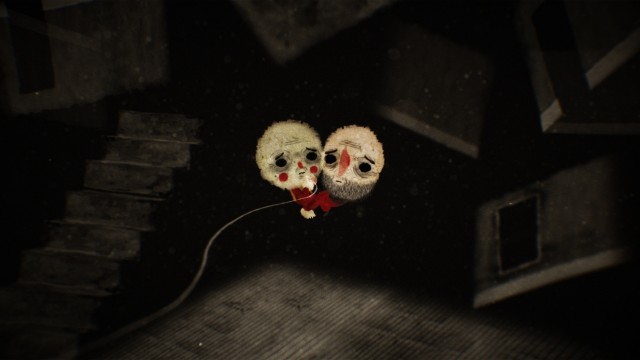As the managing editor at Short of the Week, I’m often invited to join film festival juries or participate in awards voting. While I always share my opinions during discussions, it’s rare for me to engage in a heated debate over a film. However, Stephen Irwin’s dark and twisted fairy tale World to Roam is the exception. While some might not appreciate its innovative craft and surreal narrative, I consider it a modern masterpiece – one I’m thrilled to finally share on our site.
“Life moves fast, especially when adapting to life with a baby”
Originally conceived as a short story, World to Roam tells the strange and haunting tale of parents desperately trying to keep their child from wandering. Though dreamlike in its presentation, much like many films about parenthood, Irwin’s work serves as an allegory for the challenges of raising children, drawn from his own personal experiences. “Life moves fast, especially when adapting to life with a baby”, the director shares as he describes his film as “a heartfelt reflection on the fleeting nature of childhood and the ever-evolving role of a parent”.
As a parent myself, I have to admit that time seems to accelerate once you have children – or perhaps it’s simply that there are more milestones to mark its passing. As your baby grows from toddler to child, there’s often a strong desire to pause a moment in time, to hold onto a particular stage and keep them from growing up too quickly. Yet this growth is inevitable.
In real life, these developmental changes unfold gradually over years, giving parents time to adjust. But for the mother and father in World to Roam, these transformations occur in an instant. Just as they begin to come to terms with their child’s “wanderings,” he suddenly bursts into flames! It’s a clever narrative choice by Irwin, as if he’s condensing the entire experience of parenthood – from early milestones to the moment children leave home – into the film’s 12-minute runtime.

The parents in World to Roam clinging to the string (and each other) tied to their child, placed there to stop him wandering.
However, World to Roam isn’t so much about events as it is about emotions. We all have firsthand experience with the stages of growing from child to adult, and whether you’re a parent or not, you understand the emotional strain these transitions place on those looking after you. What Irwin’s film truly captures, instead, are the intense feelings of being a guardian for another human and, much like his film, how all-consuming this experience is.
Irwin hadn’t initially planned to turn World to Roam into an animation until the opportunity to pitch for a grant arose, which led him to adapt the story into a script. Although he didn’t receive the grant, by then he had grown attached to the project – much like a parent to a child – and decided to move forward and make the film himself, with no budget.
The film’s 170+ shots were all hand-drawn and painted by Irwin, who also took on the task of animating it in After Effects. In addition, he cast the narrator, secured the music rights, and handled the editing, grading, sound design, and mixing. Reflecting on the process, Irwin admits, “It was a lot to undertake alone. If I’d thought it through properly, I might never have started.” Well, we’re really glad he did, as World to Roam is the latest film from the director to feature on S/W, following it the footsteps of The Black Dog’s Progress (2009), Atomic Hubbub (2010), Horse Glue (2011), Moxie (2012) and Wood Child & Hidden Forest Mother (2021).

 Rob Munday
Rob Munday